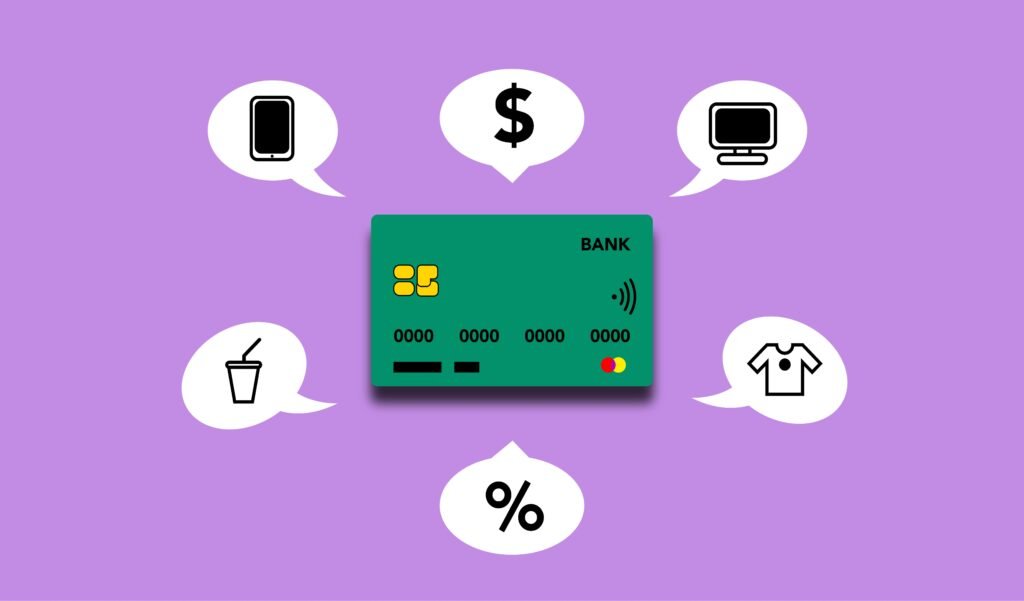Student Debt Problem in America [A Strategic Know-how to Tackle Student Debt]
What if you do not qualify for loan forgiveness? What are my options for getting rid of student debt?
It is very alarming that, at the moment, nearly 48 million Americans are saddled with student loan debt. Since you’re here, chances are high that you’re one of those Americans. If this is the case, you have nothing to worry about as we are here to assist you through this process. This article covers everything from the basics of student loans to quick strategies on how to tackle the debt.
Sounds good? Then let’s get started!

Student Loan Types [Understanding the Basics]
What is a student loan? A student loan is a federally backed loan which means that the government will pay the university if the student does not. The bitter truth is that obtaining student loans is not as simple as it may sound. It’s because the authorities don’t really approve it until the student proves a desire to pursue a college education.
The good thing is that you can choose from a variety of loans. You can select based on their advantages and disadvantages. Because the interest rates are fixed and comparatively low for federal student options.
Private student debts today are also not that bad. You’ll discover that these loans can meet a student’s demands in certain situations (as we’ll describe in the next sections).
Student Loans: Private vs. Federal
Who offers student loans? Both the federal government and private lenders offer student loans. Private student loans at first are not the best option for everyone, despite having many significant advantages. But private student loans can be a great option when repaying your federal student loans.
Below we have listed the different types of loans that you can qualify for. Here’s a brief overview of the different loan types. Please note that all the data mentioned below is the latest (term 2022-23) at the time of this discussion.
- Direct Unsubsidized Loan:
The interest rate for this federal loan is 4.99% for undergraduates and 6.54% for graduate students. The repayment time frame is 10 years. Unlike direct subsidized loans, these types of loans accumulate interest from the start. Nonetheless, this alternative comes in handy for those who do not have an immediate need for a student loan but have a desire to receive one for a better lifestyle. Since this alternative does not require any financial need for the application.
If you are a student who doesn’t qualify for a need-based loan, you are good to go for this one.
- Direct PLUS Loan:
The interest rates on these loans are higher than the average federal loan rate, and the origination costs are also exorbitant. It is federal with a 7.54% interest rate and a repayment time of 10 years. Graduate students and their parents are eligible for this option.
- Direct Consolidation Loan: This brings all your federal student loans together. This allows you to combine multiple federal student loans into a single loan. So, instead of dealing with multiple federal student loans, you can obtain one combined loan with one interest rate and one monthly payment. Be careful when consolidating loans as you will receive the average of all of the interest put together. Sometimes it is better to pay them off separately as you can tackle them down a lot quicker.
- Private Student Loan:
Private student loans are those that come from financial institutions other than the federal government, such as banks and credit unions. Each lender has its own eligibility standards, which may include income and credit ratings. This makes qualifying for private student loans more difficult than for federal loans. To obtain a private student loan, you usually need to have high or exceptional credit, whereas the majority of government student loans don’t even require a credit check.
The rate of interest for private student loans can vary from 1 to 15%. Also, the repayment term can be 5 years to as high as 15 years. Undergrads, grads, and parents of students are eligible who have an excellent credit record but have maxed out on their federal loans.
*** For all the above-mentioned loan types, the individual must be a US citizen or a permanent resident. Also, for a federal student loan, a free application – the Free Application for Federal Student Aid (FAFSA) — will need to be submitted.
Student Debt Problem in America
You don’t have to be an expert to see that, the increasing tuition fee is fueling the problem of student debt in America. This increase in educational costs has driven students and their parents to rely on student loans to cover the expenses. However, since we find ourselves following societal norms to pursue higher studies, let’s learn some strategies that may help you tackle student loans more strategically.

How to Pay Off Student Loans [Practical Approaches]
Students who have student loans apparently feel the pressure to pay them off as quickly as possible. Here are some effective ways to pay off student loans. Let’s look at them –
- Paying extra can certainly help get rid of student loans early. For example, if you have a loan balance of $20,000 at a 4.5% interest rate for a period of 15 years, you pay $153 on a monthly basis. However, if you pay an extra $125 each month, your loan will be paid off in 7 years. So, you can shave off 8 years with extra payments.
- Bi-weekly payments are a great way to settle student loans as you divide them up to make 24 payments a year instead of the regular 12. Instances show that you can shave up to 1 additional repayment term just by paying biweekly.
- You can use the Federal Loan Simulator to consider loan plans and reimbursing options.
- Refinancing is also a viable choice to cut down on loan-related costs.
- Consider autopay enrollment for low-interest rates.
Do I qualify for loan forgiveness? How Can Student Loans be Forgiven Through Bankruptcy?
In the 20th century, there was a real concern about student loan discharge. Because, the Federal Loan Authority was canceling the studentships of students who took out loans, declared bankruptcy, and failed to repay them.
But an exception was created in the law sanctioned by Congress in 1976, coining the term ‘undue hardship’. So, it was possible for a student loan discharge in a 5-year period (which was extended to 7 years in 1990) if the loan was somehow causing the student ‘undue hardship’.
Since there’s no clear way of identifying the hardships, the authorities came up with 3 qualifying criteria:
- If there is force involved and the living standards drop below the minimum threshold.
- Student/borrower cannot repay the loan “for a significant segment of the repayment timespan”.
- A show of goodwill to repay the loans.
The bankruptcy court will go through the claims and judge them against these requirements. If they hold true, your student loan may be forgiven.
*** The “Fresh Start through Bankruptcy Act” brings a change to the current law – if a student/borrower faces “undue hardship” in the initial 10 years of repayment, they can have it removed after 10 years without justification.
What are the benefits of Student Loan Refinancing?
What does student loan refinancing mean? Student loan refinancing means exchanging your current student loans with a new loan plan with a lower interest rate. Certainly, it is an excellent way to cope with rising educational costs. The benefits are quite visible:
- Lower interest rates.
- A decrease in the debt-to-income (DTI) ratio due to the lower monthly rates. You will be able to apply for other loans as well.
*** DTI = (monthly debt payment/gross monthly income). In general, a good DTI range for mortgage qualification is 36 to 43%. Anything above 50% and you will not be able to apply for other loan options.
If you are considering student refinancing, then you may want to consider:
- Your financial status (loan forgiveness will not be available with federal loans).
- You are saving a substantial amount (use a student loan calculator for measure).
- Your credit score should be around 630 to 720 for refinancing. A co-signer can also help you meet the requirements.
Student Loan Financing [Recommended Private Financiers] What are the best private student loan refinancers?

In this section, we will shed light on the two top student loan financiers we found through our research:
Our first pick is Ascent. It is an excellent choice for undergraduate borrowers because of the low-interest rates, starting at 1.75% (0.25% if you enroll in autopay). You can take advantage of the no-cosigner student option and the 1% graduation cashback reward.
SoFi is another excellent choice for students, with a starting interest rate of 2.99% for up to 15 years. You can also enjoy the career counseling and financial planning features upon enrollment
Final Thoughts
In this day and age of high educational costs, if you do not have solid financial backing, your only option is to obtain a student loan in order to pursue your preferred higher education. In this article, we discussed the different types of student loans, which will help you decide which one is right for you. Here we also discussed various debt coping strategies that will help you in your endeavor to pay off your student loan.
If you are ready to tackle down your debt and are looking for a financial tool to help you get there. We have create the financial accelerator course that is equipped with a tool to help manage your finances as well as help you get to your investment goals.
References:
- https://studentloanhero.com/student-loan-debt-statistics/#:~:text=The%20most%20recent%20data%20highlights,the%20first%20quarter%20of%202022.
- https://www.nerdwallet.com/article/loans/student-loans/pay-off-student-loans-fast
- https://www.thebalance.com/best-private-student-loans-4177161#toc-best-for-graduate-students-sofi
- https://studentaid.gov/loan-simulator/
- https://www.forbes.com/advisor/student-loans/pay-off-student-loans-fast/
- https://www.salliemae.com/college-planning/student-loans-and-borrowing/compare-federal-vs-private-loans/
- https://www.bankrate.com/loans/student-loans/private-student-loans-guide/
- https://studentaid.gov/manage-loans/forgiveness-cancellation/bankruptcy
- https://www.bankrate.com/loans/student-loans/types-of-student-loans/
- https://theconversation.com/can-student-loans-be-cleared-through-bankruptcy-4-questions-answered-166308
Student Debt Problem in America [A Strategic Know-how to Tackle Student Debt] Read More »






